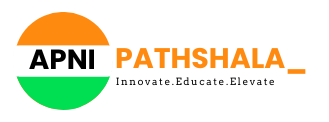Discover why learning pods offer a more personalized and effective educational alternative than traditional schools. Explore the benefits of small-group learning and customized instruction in fostering academic success.
Personalized and effective education through community-based learning pods
Sadly, our education system is not keeping up with how quickly the world is changing. This is about identifying issues and providing solutions, not about blaming anyone in particular. More depressed, anxious, and miserable than ever, students are being trained for careers that will soon become outdated rather than realizing their full potential. Personal development is about developing yourself, not about fitting into someone else’s mold. It’s about getting the chance to discover your potential and decide on a course that fits with who you are capable of being. There has never been a more crucial time for personalized learning and community-based learning pods than now.
Let’s end the lack of independence in the classroom and genuinely raise children to thrive in the real world, all without putting your money or your mental health in danger.
What is a learning pod?
A learning pod is a compact gathering of kids who come together to study and interact. Parents set up learning pods where they alternate teaching duties or even split the cost of hiring an instructor. Because they are created to meet the unique needs of each family, no two pods are alike. Students may receive their education at a community center, in their backyard, or at their parents’ home. While some pods follow the curriculum of the public schools, others follow their path of study. While some parents use learning pods exclusively to educate their children, others use them as a supplement to their children’s online education.
Your students will benefit from a learning pod because they will have access to a standards-aligned curriculum, enhanced test prep support, and the opportunity to build friendships, receive support, and extend their learning in a small group setting.
At learning pods, where learning takes place, children of all ages receive assistance with their academic, mental, and physical difficulties.
How to Create Successful Community-Based Learning pods?
it doesn’t have to be in a formal setting; it just needs to be one that people can trust. Building trust with parents and guardians is essential since some of them are frequently concerned that the center would encourage kids to “act out” of their caste, religion, or ethnicity. Both these ideas and the goals of community-based education must be carefully negotiated. Since neither children nor parents must travel far to access resources, skills, and information, remote communities can also profit from community-based learning approaches. They can interact with them close to where they live.
-
-
Parental Involvement in Child’s Education
-
-
The success or failure of a community-based learning pod depends on the parent’s involvement in their child’s education. It is easier for the interventions to be effective if the parents are active in every element of the child’s growth and development. Even though it is a challenging and time-consuming effort, involving the parents makes it easier to implement various other initiatives. For instance, some parents can provide logistical support for the community members and some moms and women from the community can discuss menstrual hygiene practices and assist girls from the neighborhood.
-
Taking Care of the Children’s Vulnerabilities
-
-
Problems with child labor, child abuse, and child marriage are common in slum areas. It can be challenging to stop these behaviors without upsetting the locals. But raising awareness is the key to solving these problems. The learning pods may be used to talk about these issues and get more kids out of informal learning settings and into official classrooms. For instance, girls are not allowed to choose their own careers. Girls and their parents can discuss these challenges and come up with practical solutions at our community pods.
-
Upholding a flexible approach to teaching
-
-
An alternative to the school-based learning model is provided by learning pods. As a result, they have the choice of using learning pods as a place for remedial instruction while still pursuing their education in official institutions, or they can enroll in the National Institute of Open Schooling (NIOS) and complete their formal education entirely there. Children are not restricted by a fixed mix of courses or by certain texts that must be finished by a set examination deadline in the open schooling system provided by such centers. Instead of a binary pass-fail system, they can take exams on their own time and are given numerous chances to pass.
-
Development of Community Experts
-
-
People obtain expert advice and upskilling training programs at community-based learning pods. In addition, it is crucial to support community members who have received training to collaborate with the professionals and carry out these procedures independently. The effects of community involvement in supporting the activities of the pods are longer-lasting and more profound. If a specialist or trained professional is unable to lead a session at the learning pods, these collaborations serve to continue community learning. As a result, there are fewer gaps in education or other services offered.
Every community has its own set of values, customs, difficulties, and resources. It takes time to navigate these and prove the worth of community-based learning pods. A multidimensional strategy does, however, produce outcomes. Community-based pods give families a way to work together, identify relevant methods to assist their kids’ education, and empower people. Even though they may have an educational focus, they also consider the necessity of addressing a number of other aspects of a child’s life that are crucial for keeping them in school and promoting great education.

